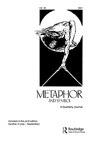Countering Undesirable Implications of Violence Metaphors for Cancer through Metaphor Extension
IF 3.3
3区 文学
0 LANGUAGE & LINGUISTICS
引用次数: 0
Abstract
ABSTRACT Violence metaphors for cancer can have undesirable implications. The metaphorical expression “She lost her battle with cancer,” for instance, is deemed inappropriate by some because of the implicit suggestions it would carry about patients’ responsibility to recover from the disease – if someone “lost” it is inferred they could also have “won” if only they had “fought harder.” The current study explores how language users may use a metaphor extension approach to argue against metaphorical implications they feel are harmful, offensive or otherwise inappropriate. More specifically, this paper will combine recent findings in metaphor research on metaphor extension with two case studies on argumentative resistance to violence metaphors for cancer to illustrate two ways in which these metaphors can be (re)interpreted in such a way that they are in line with language users’ (desired) perspective on the disease. Using analytical tools from Pragma-dialectics, the case studies will demonstrate how a close analysis of expressions of resistance to violence metaphors for cancer that extend these metaphors can 1) help pinpoint the precise metaphorical implications that are being contested in a given case of resistance, and 2) provide an insight into which alternative interpretations are deemed acceptable by the protagonists of resistance.从隐喻扩展看暴力隐喻对癌症的不良影响
癌症的暴力隐喻可能会产生不良影响。例如,“她在与癌症的斗争中失败了”这个比喻被一些人认为是不恰当的,因为它隐含着患者从疾病中恢复的责任——如果有人“输了”,那么如果他们“更努力地战斗”,他们也可能“赢了”。“目前的研究探讨了语言使用者如何使用隐喻延伸的方法来反驳他们认为有害、冒犯或不恰当的隐喻含义。更具体地说,本文将把隐喻扩展的最新研究结果与癌症的两个辩论性抗暴力隐喻案例研究相结合,以说明这些隐喻可以以符合语言使用者对疾病的(期望的)观点的方式被(重新)解释的两种方式。使用Pragma-dialetics的分析工具,案例研究将展示对癌症暴力抵抗隐喻表达的密切分析如何扩展这些隐喻,1)有助于确定在特定的抵抗案例中有争议的确切隐喻含义,以及2)深入了解哪些替代解释被抵抗的参与者认为是可接受的。
本文章由计算机程序翻译,如有差异,请以英文原文为准。
求助全文
约1分钟内获得全文
求助全文
来源期刊

Metaphor and Symbol
Multiple-
CiteScore
2.90
自引率
0.00%
发文量
23
期刊介绍:
Metaphor and Symbol: A Quarterly Journal is an innovative, multidisciplinary journal dedicated to the study of metaphor and other figurative devices in language (e.g., metonymy, irony) and other expressive forms (e.g., gesture and bodily actions, artworks, music, multimodal media). The journal is interested in original, empirical, and theoretical research that incorporates psychological experimental studies, linguistic and corpus linguistic studies, cross-cultural/linguistic comparisons, computational modeling, philosophical analyzes, and literary/artistic interpretations. A common theme connecting published work in the journal is the examination of the interface of figurative language and expression with cognitive, bodily, and cultural experience; hence, the journal''s international editorial board is composed of scholars and experts in the fields of psychology, linguistics, philosophy, computer science, literature, and media studies.
 求助内容:
求助内容: 应助结果提醒方式:
应助结果提醒方式:


